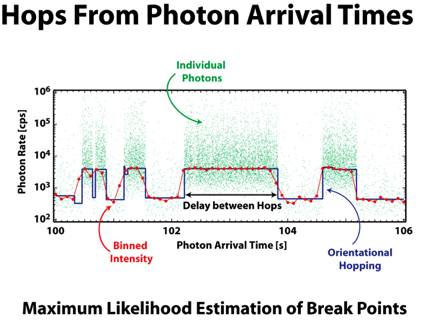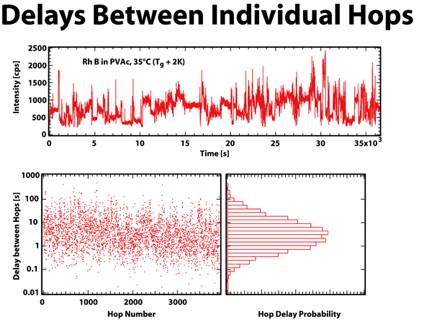

42471-GB7
Non-Arrhenius Glass Dynamics at the Single Molecule Level
Introduction
From sugar coatings on corn flakes to plastics, glasses are ubiquitous materials in our world. Glasses, unlike solids are not static, they relax slowly leading to a gradual change of the mechanical properties of the material. Given the widespread use of these materials, this relaxation dynamics is therefore not just of fundamental but also of practical interest. Single molecule spectroscopy allows to observe microscopic processes in heterogeneous systems, such as glasses, which in traditional experiments are hidden behind the unavoidable averaging over a large number of molecules. <>Results
The times of individual, sudden, rearrangements in a glass, as observed with single iodine probe molecules in a poly-vinylacetate matrix and identified directly from the fluorescence photon arrival trajectory (Figure 1), present a very detailed picture of glass dynamics on the molecular scale. The sequence of delays between subsequent rearrangement events in the local environment of the probe molecule (Figure 2) is consistent neither with heterogeneous nor with homogeneous dynamics. Instead our results agree best with a dynamics of the heterogeneities that is identical to the glass dynamics itself. These findings suggest that glass dynamics is governed by activated hops across a barrier that is modulated by the dynamics of neighboring molecules.
Figure
1: Statistical estimation of intensity breaks from
photon arrival times allows to identify single molecule reorientation events
indicating individual glass rearrangements.
Figure
2: Delays between two subsequent single molecule
reorientation events in chronological order. The overall distribution resembles
results from dielectric measurements, the time-order, which is only accessible
through single molecule experiments, reveals transient heterogeneities as
non-random structure.

